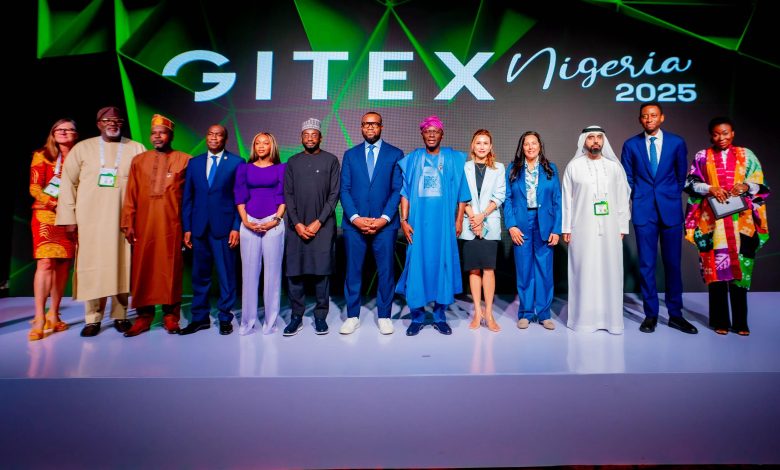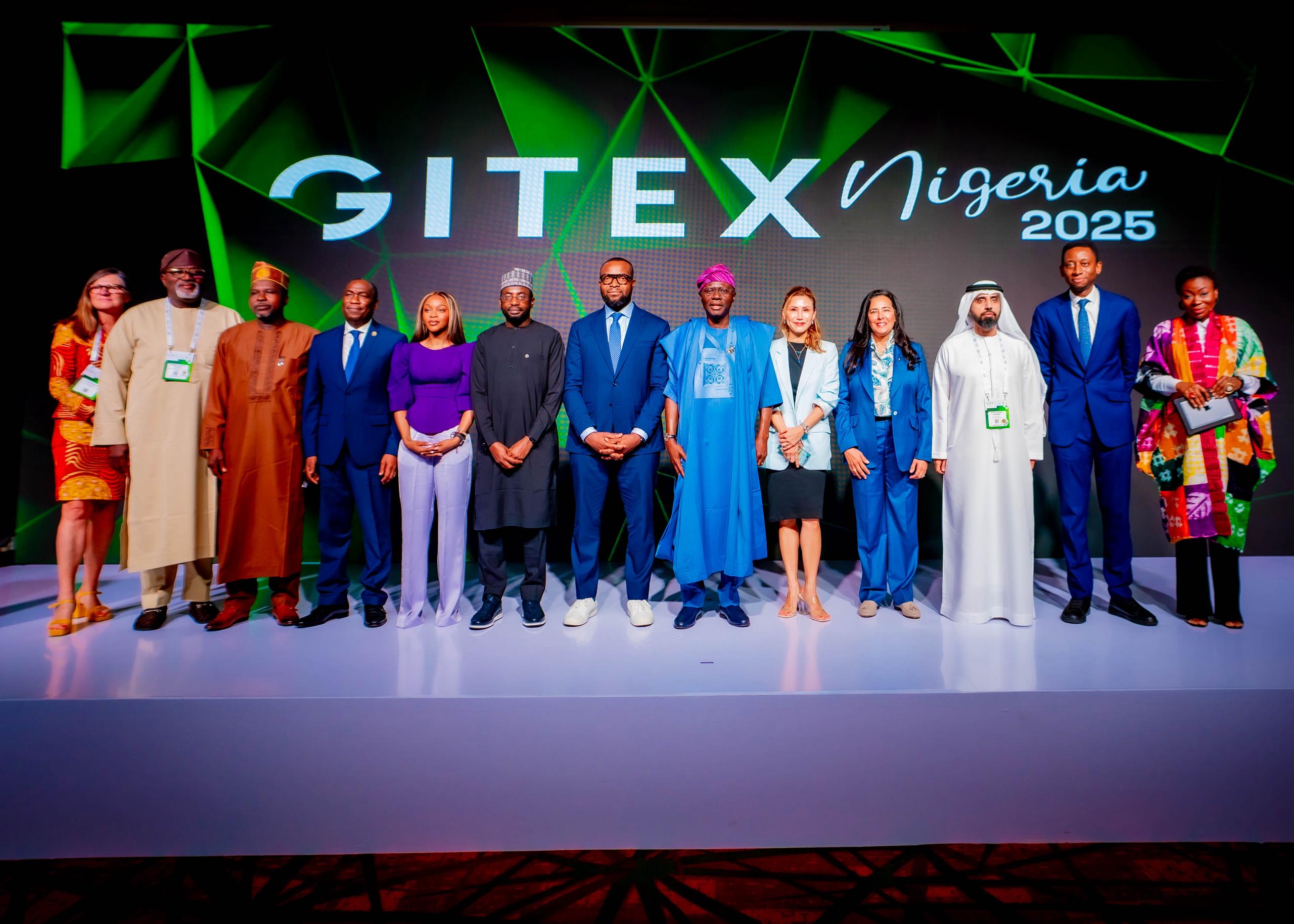Government, Global Partners Rally at Inaugural GITEX Nigeria as Nigeria’s Tech Prowess on Display


By Azeez Disu
Government and industry leaders at the inaugural GITEX Nigeria have stated that Nigeria has the potential to lead the global digital economy, considering its strengths in the ICT sector, Fintech sector, and others.
The landmark two-day event, held across the Eko Hotel Convention Centre and the Landmark Centre, brings together global technology giants, investors, government officials, and hundreds of startups, turning the world’s attention to Nigeria’s booming tech ecosystem.
Lagos State Governor Babajide Sanwo-Olu welcomed attendees to the “commercial economic nerve center” of Nigeria, highlighting the state’s critical role as “Africa’s innovation sector”. He revealed that Lagos has attracted over $6 billion in direct foreign tech startup funding between 2019 and 2024 and accounts for over 70% of the country’s tech inflows. “Lagos is a place where diversity is not just demographic but an engine of creativity and resilience,” Governor Sanwo-Olu stated, pointing to a startup ecosystem now ranked among the most vibrant in the world.
The conference underscores a strategic national vision. Dr. Bosun Tijani, the Minister of Communications, Innovation and Digital Economy, emphasized that President Bola Ahmed Tinubu has placed the digital economy at the heart of his “renewed hope agenda”. Dr. Tijani noted that Nigeria’s ICT sector has become the fastest-growing contributor to the country’s GDP, consistently contributing between 16-18% and surpassing the oil and gas sector. His ministry’s goal is to increase this contribution to 22% by 2027. Key government initiatives supporting this vision include a 90,000 km fiber optic cable project to connect every part of Nigeria, the 3MTT skills program to train young Nigerians for global opportunities, and a new National Digital Economy and New Governance Bill.
The event’s arrival in Lagos was the culmination of a two-year journey that began when Governor Sanwo-Olu attended GITEX Africa in Morocco and challenged organizers to bring the conference to Nigeria. Kashifu Abdullahi, Director-General of the National Information Technology Development Agency (NITDA), stated, “For me, GITEX Nigeria is not just another conference. It is a declaration that Nigeria, we are ready to lead in the future economy”. He highlighted how intentional government policy, like the cashless policy implemented in 2012, catalyzed the fintech boom that has made Lagos a “factory of unicorns,” with five of Africa’s eight or nine unicorns originating from Nigeria.
International partners echoed this optimism. The International Finance Corporation (IFC) revealed it has invested over $6 billion in Africa’s digital infrastructure over the last decade, with more than $1 billion in connectivity projects in 2024 alone. Dahlia Khalifa, IFC’s Regional Director, identified Nigeria as “ground zero for Africa’s AI revolution,” stressing that responsible regulation and private sector investment are vital for inclusive growth.
Trixie LohMirmand, CEO of GITEX organizer KAOUN International, praised the unique resilience of Nigeria’s entrepreneurs. “Silicon Valley scales with capital; here, they scale with resilience,” she remarked, noting that Nigerian startups are born out of necessity and survival. The event itself is a testament to this, featuring hundreds of companies, over 650 startups, and nearly 200 investors, with many visiting Nigeria for the first time to witness its potential firsthand.
The conference serves as a platform for collaboration and investment, connecting local innovators with global partners to co-create solutions and shape an inclusive, innovative, and globally competitive digital future for Nigeria and Africa.


